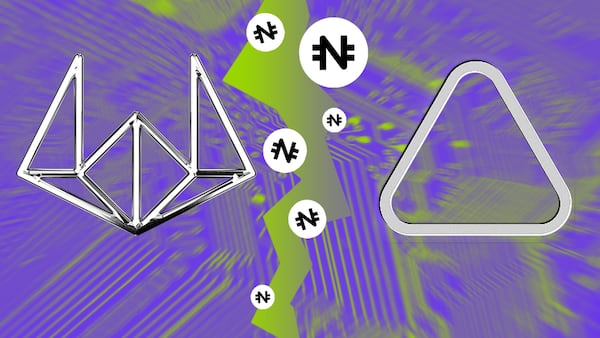- Near DAO is looking at reducing inflation of Near's native token.
- It's not the only blockchain to do so.
- Not everyone agrees it's a good idea.
Stakeholders in Near, the layer 1 blockchain, are mulling a sharp reduction to staking rewards in a bid to reduce the issuance of new tokens.
On Tuesday, Hot Protocol, a blockchain infrastructure project, proposed halving the maximum NEAR token inflation rate to 2.5% in a post on the Near governance forum.
“Reducing NEAR’s inflation is an urgent priority,” Hot Protocol said in the proposal. “Every additional month of the status quo means millions of new NEAR entering circulation, which is not only dilutive but also unnecessary given the low fee burn.”
Blockchains like Near incentivise validators to process transactions by rewarding them with new tokens. At the same time, users on that blockchain pay for transactions with these same tokens.
The problem is that users aren’t spending enough tokens on transactions to offset the new tokens given out to stakers. Because of this, the supply of the blockchain’s token inflates, often negatively impacting its price.
Token inflation is a pressing issue for investors. The NEAR token has tumbled 89% from its all-time high in 2022.
So far, members of Near DAO, the crypto collective that governs the blockchain, are split on the proposal.
While many support a reduction in token inflation, others warn it could have a negative impact.
“The proposal to sharply cut NEAR emissions is reckless and risks triggering a destructive cycle of unstaking, selling, and collapsing price — with no offsetting demand,” Near_Maxi, a pseudonymous Near governance participant, said in response to the proposal.
Potential impact
Hot Protocol calculates that under the current 5% inflation rate, more than 60 million new NEAR tokens are minted each year, which are worth $128 million.
In other words, users need to burn that amount through transactions, or investors need to pour that much into the NEAR token to maintain its value.
With Near blockchain users spending an average of $8,000 on fees daily, the former doesn’t seem likely anytime soon.
For stakers, the change would reduce staking yields from around 9% to 4.5%. Staking yields are higher than the blockchain’s inflation rate because not all NEAR token holders stake their tokens.
Reducing the staking yield could also make decentralised finance on Near more competitive, Hot Protocol said. When staking yields are high, DeFi users have little incentive to park their capital elsewhere.
‘Token death spiral’
Not everyone is convinced, though.
Lowering staking yields could kick off a so-called token death spiral, Near_Maxi said.
“Some stakers at the margin may only hold for the high APY — take that away, and they sell,” they said.
The theory goes that if large stakers decide to sell it could negatively impact the token’s price, potentially pushing more users to sell in a vicious cycle.
“Emission cuts don’t automatically lead to price strength. Without demand, they backfire,” Near_Maxi said. “Let’s not make NEAR another case study in how to destroy your own token.”
Several other DAO participants expressed similar concerns.
Not the only one
Near isn’t the only blockchain grappling with high token inflation. Earlier this week, a co-founder of Celestia, the modular blockchain, proposed removing staking altogether in a bid to lower token inflation.
In March, Solana voted on whether it should reduce staking rewards, saving the blockchain around $3.5 billion in tokens granted to stakers each year. The vote failed after detractors argued the move could hurt the network’s decentralisation.
In February, Ethereum Foundation researcher Justin Drake proposed putting a cap on the amount of staking rewards the Ethereum network gives out in a bid to fix its “broken” tokenomics.
Discussion of the inflation reduction proposal will continue for the rest of the week and is scheduled to go to a vote among Near blockchain validators in July.
“The change could be activated in the network by late Q3 2025, assuming a smooth voting process and technical rollout,” Hot Protocol said.
Tim Craig is DL News’ Edinburgh-based DeFi correspondent. Reach out to him with tips at tim@dlnews.com.




